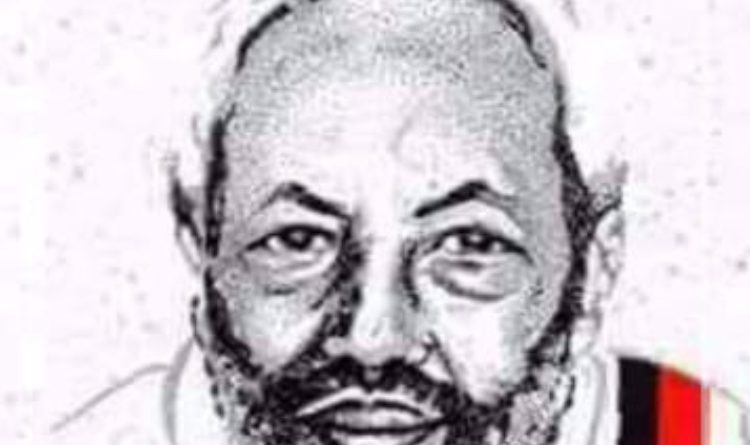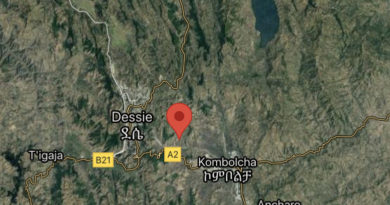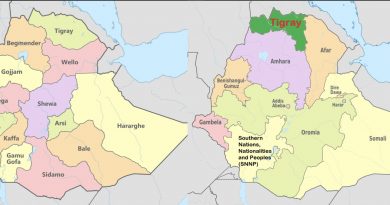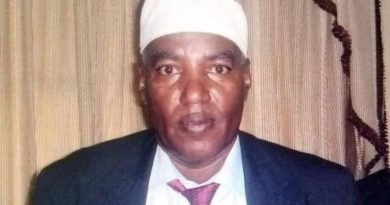The story of Irrecha by Poet Laureate Tsegaye Gebremedhin Robba Qawessa
The story of Irrecha by (Poet Laureate) Tsegaye Gebremedhin Robba Qawessa .(….12,000 years ago, ASRA the God of sun and of sky, God of KUSH PHARAOH, begotten SETE the older son, ORA the younger son and a daughter named as ASIS (ATETE OR ADBAR). The older SETE killed his younger brother ORA and ASIS (ATETE OR ADBAR) planted a tree (ODAA) for the memorial of her deceased brother ORA at the bank of Nile in Egypt where the murder had taken place and she requested her father who was the god of Sun to make peace among the families of SETE and ORA. Then rain has come and the tree (ODAA) got grown. It symbolized that the peace has taken place. Later, at the Stone Age, the tree that had been planted for the memorial of the killed, ORA was substituted by statue of stone that was erected 8000 years ago.
The festival for the ORA statue has been celebrated in September of every year when Nile flows full in NUBIA and in BLACK EGYPT. In Ethiopia during the AXUMITE and PRE-AXUMITE period a great festival has been held around the statue that was planted by ASIS (ATETE OR ADBAR) for the memorial of ORA, the son of sun’s god, who risen up from death (ORA OMO or OR OMO) for the purpose of celebrating the peace made between the two brothers. Then after the memorial was the great herald performed in thanking the god of sun and of sky with CHIBO.
The EYO KA ABEBAYE (the traditional and popular song performed at DEMERA events and new year in Ethiopia) has been started being performed since then. “KA” is the first name of God. The name of God that our KUSH Fathers have inherited to us before the old period of Christianity and Islam is “KA”. Since then, therefore, especially the OROMO, GURAGIE and the SOUTHERN people of Ethiopia have been calling God as “WAKA or WAAQA”. When we song EYOKA or EYOHA in New Year, we are praising “KA”, the God.
“GADAA” or KA AADA” is the law or rule of God. “GADAA” (KA AADA) is the festival by which the laws and orders of God are executed. Japan, China and India have now reached to their current civilization through making the basic traditions and cultures they received from their forefathers (HINDU, SHINTO and MAHIBERATA) be kept, even at the time they were receiving Islam, Christianity, and other ideologies, especially Democracy and other free believes. They are not here through undermining the culture and tradition of their forefathers.
Culture is the collection of many CHIBOs or DEMERAs. “IRRECHA” or “IRRESA” one of the part and parcel of GADAA (KA AADA) system is the corner stone of and the turning point to the new year for which ASIS (ATETE OR ADBAR) has put up the dead body of her brother, ORA who was killed by his older brother (like ABEL of Bible) from the place where he died at the river bank of NILE and planted a statue”.
The Oromo people of beautiful Africa believe in one God since time memorial. Their religion is called “WAAQEFFANNAA” which means believing in one God that is the creator of the whole universe. IRRECHA means a celebration where people get together and perform their prayers and thanks giving to God.
WAAQEFFANNAA, the faith being in the GADAA SYSTEM is a religious ceremony that is free from any thing. The fathers of Oromo religion and the people, keeping fresh grass and flowers, perform their prayers and thank their God going to mountains, to sea or to river bank.
They move to the top of mountains or bank of seas or rivers not to worship the mountains or rivers and seas. Rather to distract themselves from any noise and to worship their God (WAAQA) with concentration. And they go to sea and rivers because they believe that green is holy, water is life and the places are peaceful where the spirit of God is found.
In the Oromo culture, the rainy season is considered as the symbol of darkness. At the beginning of September, the darkness is gone, rivers run shallower and cleaner, and the mud is gone. As sunshine rules the land, the OROMO people of Africa go out to celebrate this great natural cycle with the spirit of worshiping God (WAAQA)
Source: Ethiopian studies




